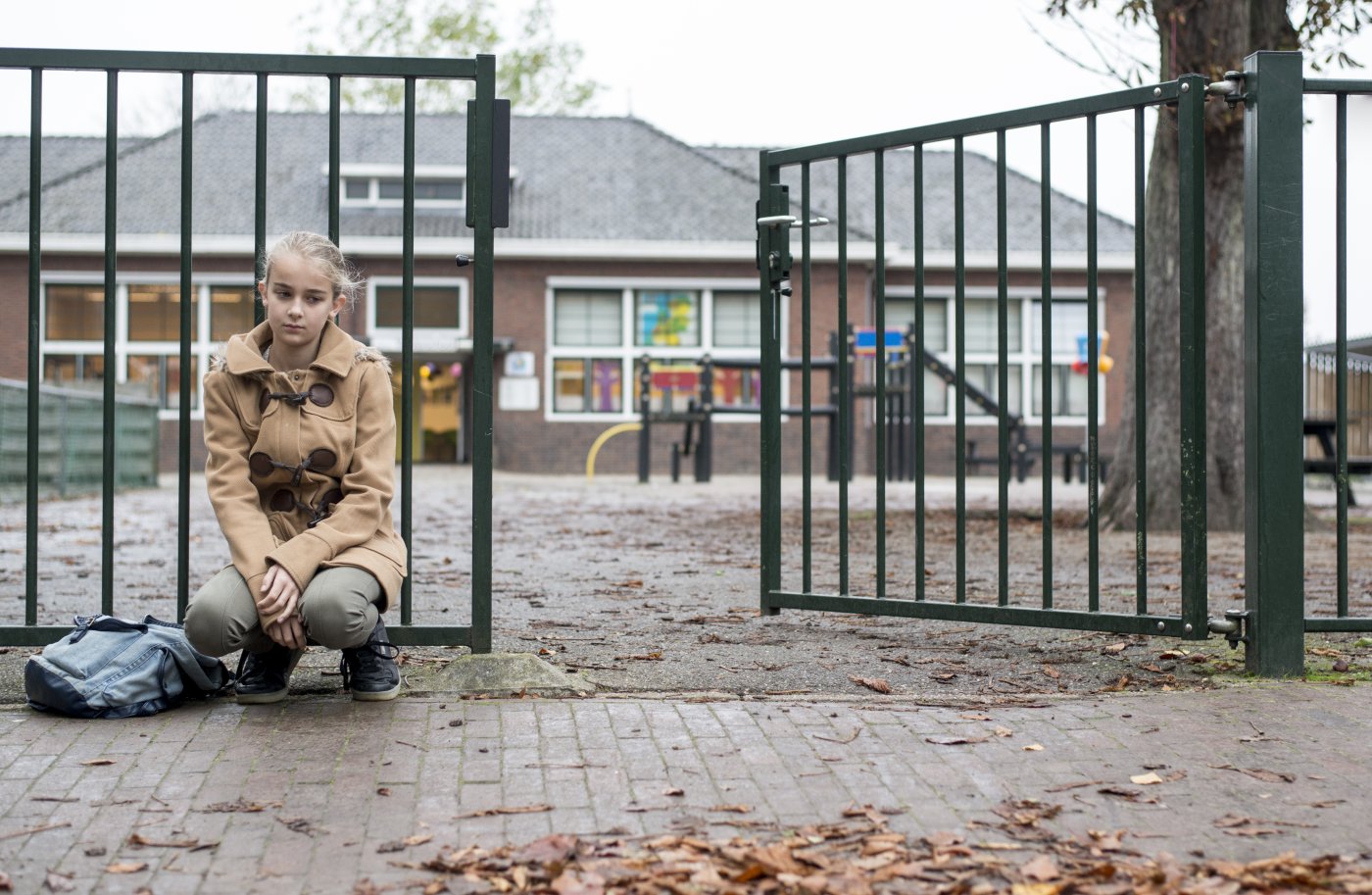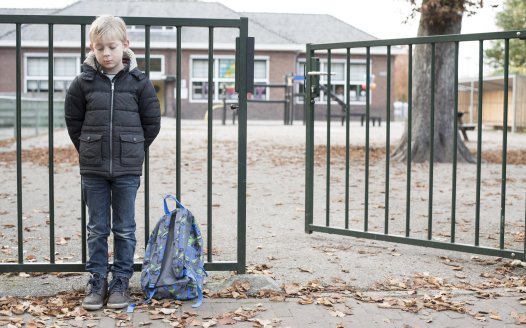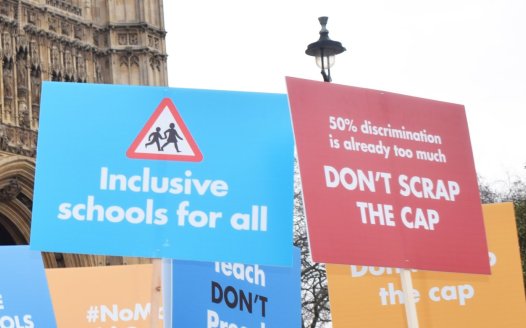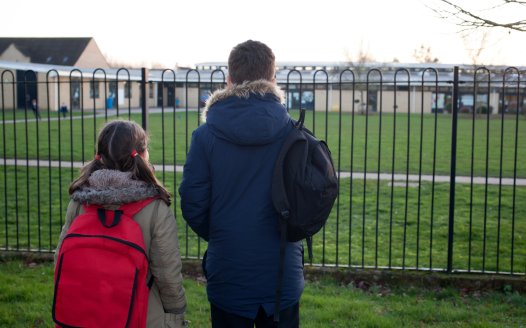Locked in and locked out: how faith schools restrict families’ choices
Posted: Wed, 25th Aug 2021 by Alastair Lichten
State funding of faith schools means many families are left without suitable schools. The narrative that faith schools are justified on the grounds of choice should be confronted, says Alastair Lichten.
The latest figures from the National Secular Society's choice delusion project, along with other research on discriminatory admissions, show how seriously faith schools are restricting choice across England. Hundreds of thousands of families a year face either being effectively locked in to faith schools, because there are few or no alternatives, or locked out of their local schools by religious discrimination.
At first glance, these may appear to be opposite problems. But both are caused by the proliferation and exclusionary nature of faith schools. This is a serious problem that left unconfronted will only grow as the country becomes more diverse and less religious.
Thirty per cent of people have little or no choice but a faith school at primary level, and 10% at secondary level. These figures represent around 475,000 pupils a year. Over 20,000 a year are assigned faith schools against their families' preferences. Estimating the number of pupils subject to direct religious discrimination in admissions is extremely difficult, but researchers have found that around half of C of E and all Catholic secondary school places are potentially subject to religious selection. It can be easy to forget the human stories behind these huge numbers and shocking statistics.
We regularly provide advice and support to parents experiencing the sharp end of the choice delusion. We hear from parents like Abhi from west London, whose four year old daughter was turned away from all their local schools on religious grounds. Rachael and David from Liverpool faced similar problems at secondary school for their son. Parents like Roxana from Bristol could pretend to be religious to access their local schools, but don't want to teach their children that dishonesty pays.
Michael from Bath told our No More Faith Schools campaign that he was effectively forced into putting all three of his children into a Catholic school. He had three schools to choose from: a terribly performing C of E school, and two Catholic schools.
Victoria from Medway told us: "My son has been placed into a faith school at the secondary school allocations. This was not one of my six choices, but no other school is available. The school say that they must attend all Catholic services even if they don't pray!"
Our research has revealed that 53% of rural primary schools are faith-based, and parents in some rural areas raised particular concerns about a lack of access to secular education. One told us she was looking at moving to a village – but the only school there, and the only schools in the next two villages, were all Church of England schools. Another said it was "impossible" to find a non-faith based school in the local area. Others said their children weren't being given the chance to make up their own minds about their own beliefs – for example because they were being forced into prayers, or were subject to evangelism.
Despite repeated parliamentary questions, research and lobbying by the NSS, the government recently admitted that it still has no estimate of its own on the extent of these problems. This means the choice delusion figures remain the best available and, combined with the new local authority scorecard, a powerful research tool for policymakers.
Breaking down these figures by local authority not only confirms the extent of this problem but provides important new insights. Serious questions must be asked about whether the worst performing local authorities are failing in their legal duties to ensure adequate suitable school provision, particularly where they are considering new school proposals. Public scrutiny and transparency around new faith schools is extremely limited, and claims that proposals will improve choice are often unevidenced and unchallenged, making reliable local data even more valuable.
And although the data only applies to England, the same problems affect families across the UK (where different methodology would be needed to work out how many are affected). Rohan from Newport told us: "My children have no choice but to attend a Church in Wales faith school, as with all our local council schools. It indoctrinates and teaches biased religious education. This is religious discrimination. Other faiths and atheism are dismissed." In Northern Ireland, over 90% of schools are segregated despite demand for integrated options.
Far from being the knockdown argument some supporters believe, 'choice' is actually one of the worst inequities caused by faith schools. Community ethos schools are suitable and accessible for pupils of all religious and non-religious backgrounds. The same cannot be said of schools organised around an exclusive faith ethos, let alone those with religious selection.
If we are to justify faith schools though this narrow concept of choice, this invites the question of why the 'choice' of schools organised around atheist, political or other ideological belief systems or identities is not also catered for.
The idea of choice is often wielded against families. Often when supporting someone dealing with inappropriate evangelism in schools, biased RE, religious sex ed, or coercive worship, they will tell me that their faith school was the only practical option. They didn't select it for faith but are told "you chose a faith school, what do you expect". Many faith schools openly state that they demand parents accept all aspects of a school's ethos if they have 'chosen' it.
Critics of faith schools are also accused of 'hypocrisy' when they have no choice but a faith school, or told to mind their own business if they are lucky enough to have the choice.
And choice focused narratives around faith schools are extremely limiting. They mischaracterise both the real-world options families have, and the social role of public education. Schools are community assets, not consumer products where individuals can choose freely between 100 brands to suite their personal taste. The harm caused by religious discrimination in school admissions and the exclusionary ethos of faith schools extends far beyond the inconvenient restriction of choice, and legitimises wider prejudices.
Moving towards a fully inclusive community-ethos education system, where all schools are suitable for pupils of all backgrounds, would be the best way to solve these problems. But in the meantime, the government must at least ensure that all families have a real option of a non-faith school.
Image: patat/Shutterstock.com.
Are faith schools restricting your options?
Are you locked out of your local school based on religion? Have you been assigned a faith school against your wishes? Are faith schools your only option?









